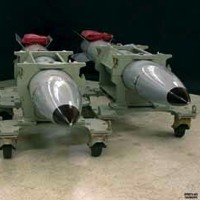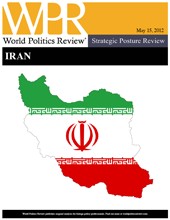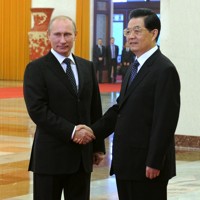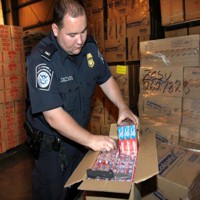WMD Archive
Free Newsletter

At its Chicago summit, NATO reaffirmed its commitment to its European-based arsenal of tactical nuclear weapons. In an email interview, Paul Schulte, a nonresident senior research fellow at Carnegie Europe and Carnegie Nuclear Policy and a visiting senior research fellow at the Center for Science and Security Studies at Kings College, discussed NATO’s nuclear weapons. WPR: What is the current size and scope of NATO’s nuclear weapons? Paul Schulte: Some 160-200 U.S. B61 gravity bombs are understood to be deployed in Europe and Turkey, the remains of the alliance’s Cold War arsenal of 7,000 nonstrategic nuclear weapons (NSNWs). They are […]

Amid the turmoil that has engulfed the wider Middle East over the course of the past year, Iran has been confronted with numerous challenges and some opportunities. Not surprisingly, the top priority for the Iranian regime remains its own survival. The main threats in this regard stem from external military intervention, internal unrest and increasingly, over the past year, strengthened international sanctions in response to its nuclear program. In order to counter these threats, Iran continues to invest in asymmetric, niche capabilities that play to Iran’s strengths while exploiting the vulnerabilities of its high-tech adversaries. The regime has also embarked […]

One issue that warrants greater attention from Washington policymakers moving forward is how relations between Russia and China will affect those two countries’ policies relating to nuclear arms control. In particular, the next administration needs to consider how the U.S. government and other actors can help shape this evolving relationship so that it moves in benign directions, while hedging against possible adverse outcomes. Russia and China have the world’s two most powerful militaries after that of the United States. China is currently undertaking perhaps the most comprehensive military modernization program in the world, while Russia still has approximately as much […]

As a presidential candidate, Barack Obama asserted that the most immediate and extreme threat to national security was that posed by a terrorist organization acquiring a nuclear weapon. As president, he pledged to mitigate that potentiality by securing all vulnerable nuclear material around the world within four years. Simultaneously, Obama pursued a high-profile nonproliferation and arms control strategy that, despite an intensive investment of political capital, has enjoyed only halting progress. Nuclear reduction negotiations with Russia have stalled. Prospects for multilateral treaties governing nuclear tests and the production of nuclear bomb fuel are distant possibilities at best. Meanwhile, Iran and […]
